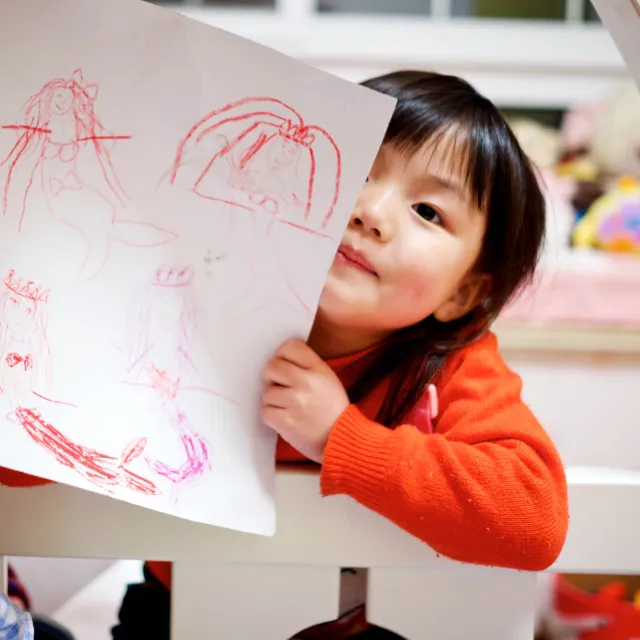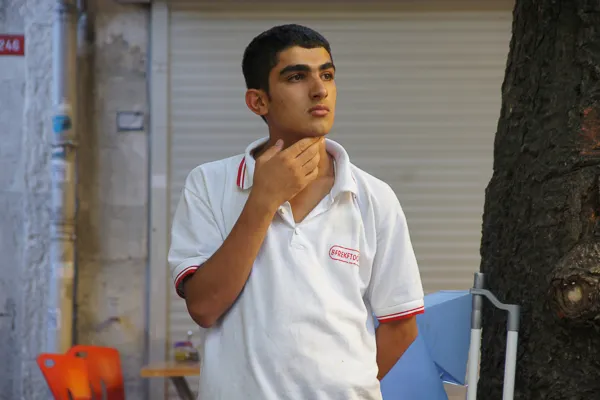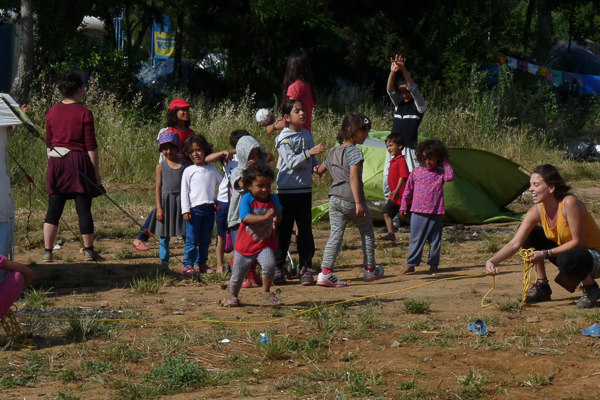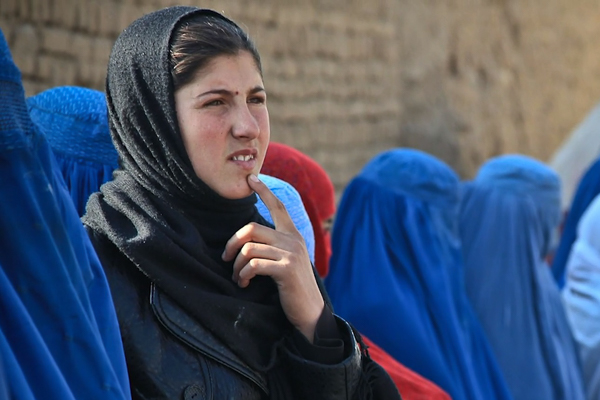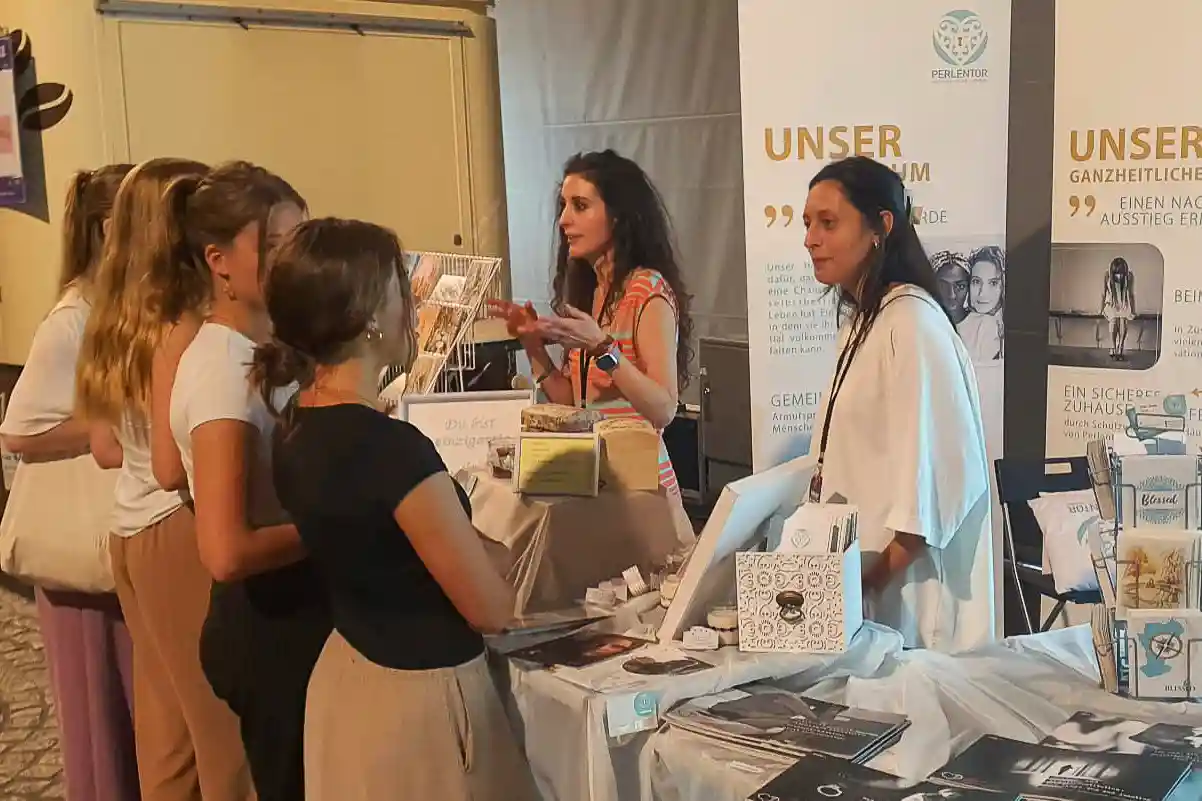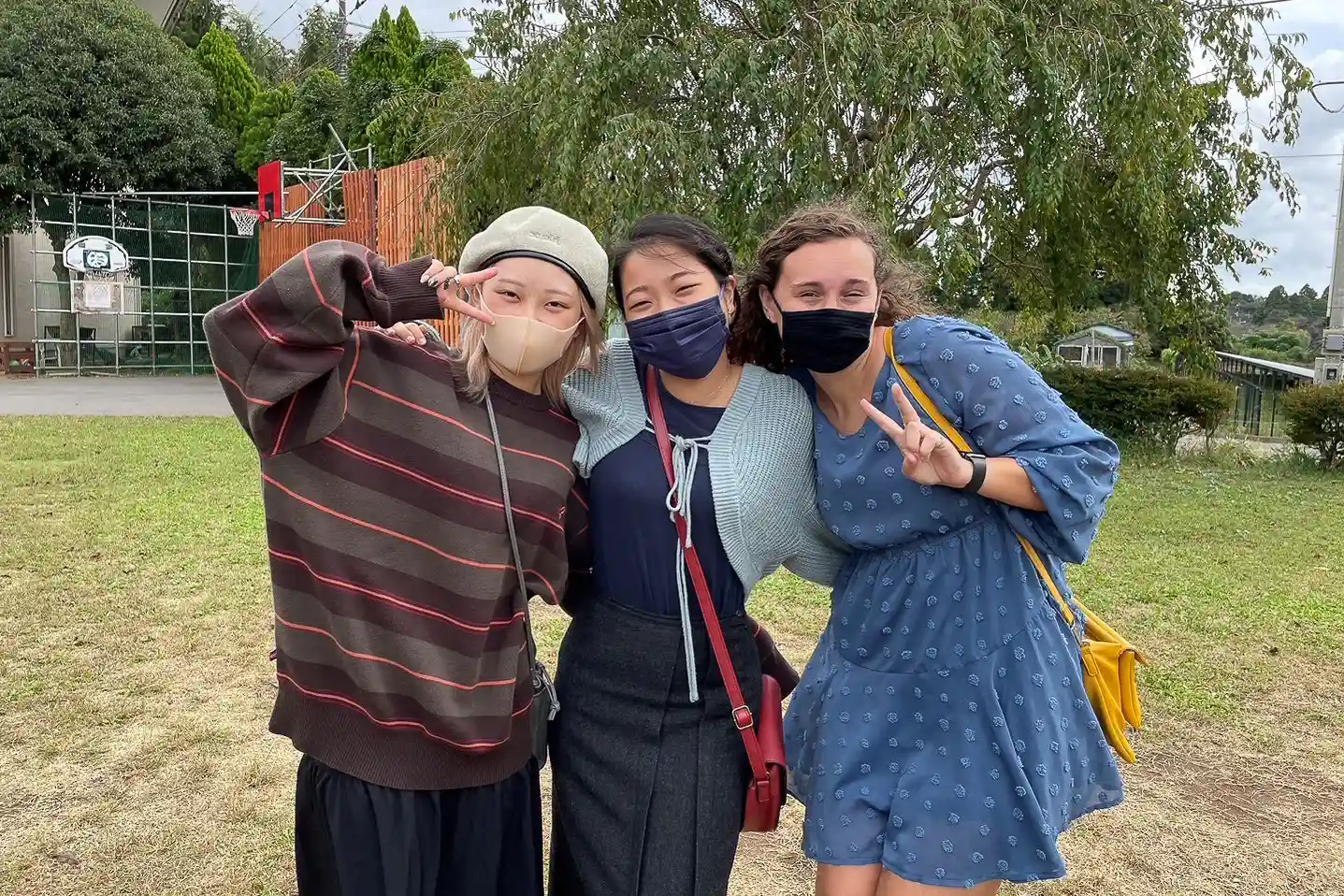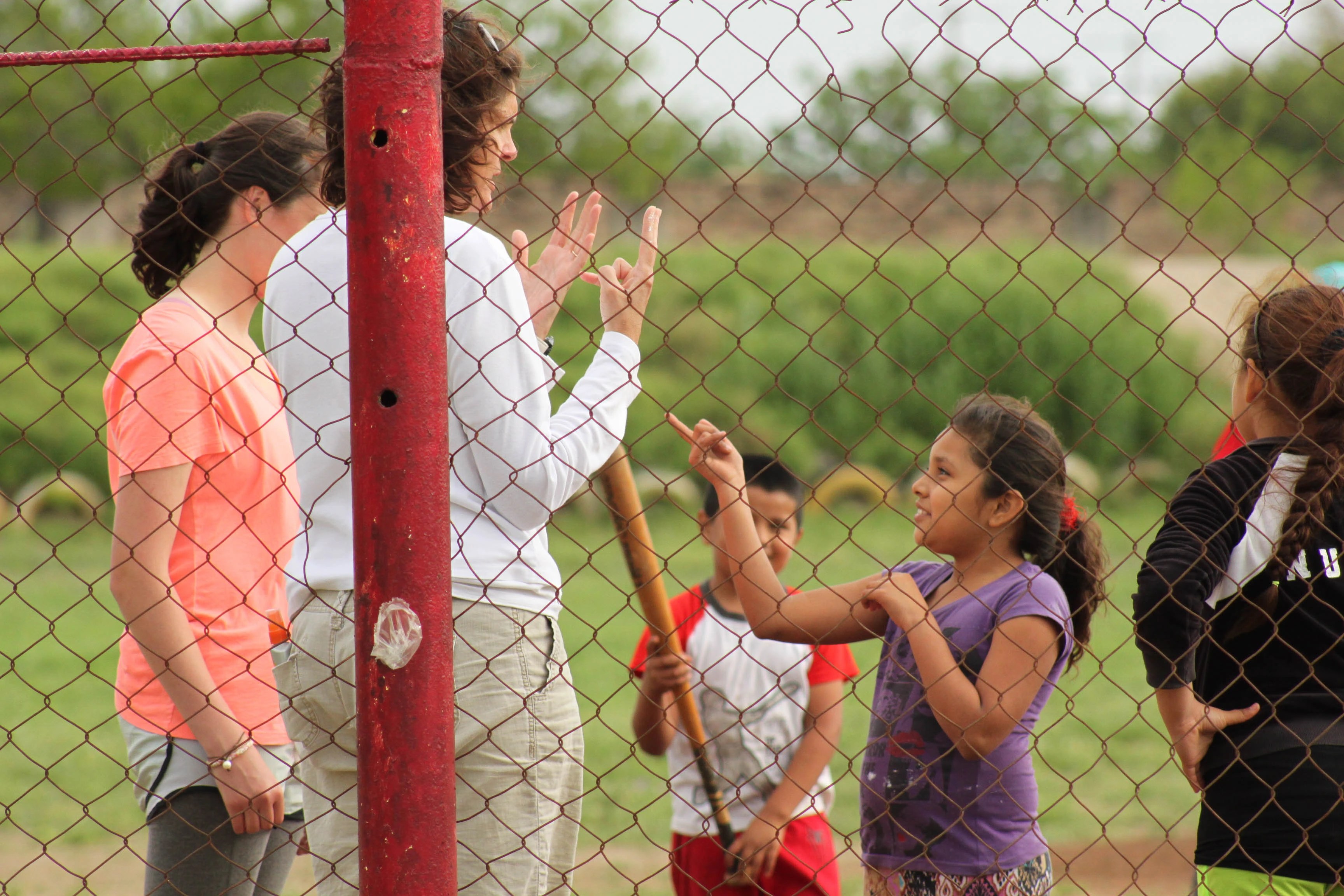“God Broke Open the 10/40 Window”

At first glance, the apartment complex in Clarkston appears no different from the others scattered around the Atlanta sprawl. Quiet. Reasonably clean. Normal. But take a closer look.
“We chose this location because out of the 200+ units, probably 90 percent of the occupants are refugees,” said MTW missionary Bill Saxon.* “We have somewhat of a Muslim focus for our team, and some of the biggest populations represented here are Iraqis, Syrians, Afghanis, and Rohingans.”
Bill Saxon and Harold Norman,* the team leader, and the pair’s families, live and work among refugees from all around the world, helping them adjust to life in America and sharing the love and hope of Christ.
A community of exiles
Noting its cheap housing, proximity to metro Atlanta’s public transportation system, and job opportunities, the U.S. State Department began settling refugees in Clarkston in the ‘90s. It’s snowballed ever since.
“Now, Clarkston is saturated with refugees,” said Bill. “Pretty much anywhere in the world where there has been a conflict in the last 25 years, a certain number of those refugees come to the United States, and of those that come to the States, a certain percentage get allocated here.”
According to Bill, resettlement agencies in Clarkston process around 2,500 refugees per year. The most recent batch are primarily Syrians and Iraqis, but over the years families and individuals from Burma, Somalia, Eritrea, Sudan, Central African Republic, Bhutan, Haiti, Cuba, Afghanistan, and more, have found refuge there—all fleeing conflict or persecution in their home countries, and hoping for opportunity and peace in America.
But getting here is not easy. According to the UNHCR: “of the 14.4 million refugees of concern to UNHCR around the world, less than one percent is submitted for resettlement.” The whole process takes about two and a half years on average, and includes intensive background checks by both the UNHCR and the U.S. State Department.
“The most vetted international people walking around in America are the refugees,” said Harold. “They don’t just show up at the Atlanta airport. They are handpicked.”
“Statistically, out of the three million refugees the United States has let in in the modern refugee era, only three have committed crimes against the state,” added Bill. “Pretty impressive.”
Facing new struggles
Even after they arrive here in the fabled “land of opportunity,” the struggles they face are real. You may be one of that 1 percent that actually makes the cut for resettlement. You won the lottery. You escaped near certain death and reached the shores of the promised land, but still it’s tough.
“Refugees are very resilient people,” said Bill. “Most of the time they find a way… But they fight discouragement. You often only have three to six months to learn English, get a job, and be paying for your apartment. It’s difficult.”
For most of the resettled refugees, poor English skills and a lack of degrees or certifications recognized in the U.S. mean that they are forced to take the jobs that nobody else wants: many end up in chicken factories.
“People who were highly educated in their home countries end up with minimum wage jobs,” said Bill. “This Iranian guy I met a few years ago was an ophthalmologist in Iran. Nothing transferred here, and he ended up working a basic minimum wage job. It was so discouraging for him, but he would say: ‘I’m working so that my children can have a better life, so that they don’t have to live in fear like we did.’”
Becoming friends and neighbors
Bill and Harold talk about the struggles of refugees in their community not as statistics or case studies or arguments for some political legislation or social cause, but as stories about real people who they know. These are their friends, their neighbors.
The Iranian man who barely sees his kids because he works the night shift to pay the bills.
The woman who, despite living in America for years now, still doesn’t speak English because she is so isolated, taking care of her little one and interacting only with women who are of the same ethnic group as she.
The parents struggling to relate to their children who grow up in America, experiencing childhoods so alien from their own.
The kids plagued by nightmares of the things they’ve seen, or falling behind in school because they struggle to learn English, while the schools are ill-equipped to deal with them.
“Many of these people are traumatized,” Bill said. “Every one of them has survived a war. I remember how hard it was for me my first year. I had worked in a refugee camp in the Middle East for six years before this, but not with the amount of traumatized people we have here.”
In an ESL class a few years back, one refugee woman told Bill that she liked living in America, because she could go in her apartment and close the door and feel safe. She didn’t have to worry about the police or the army coming and hurting her or her children. And she told him the story of when, back in her home country, she watched as soldiers beheaded her husband, and then raped her in front of her children.
“And her story is not isolated,” Bill said. “A lot of what we do is listen to people’s stories. We pray with them and for them. … Ultimately what we’re trying to do is to introduce them to Christ. It’s holistic word and deed ministry.”
Bill and Harold spend their days helping the refugees navigate life in America, find jobs, deal with transportation, taxes, mail, medical issues. They put on ESL courses for men and women, after school tutoring, Bible clubs, and summer camps for kids. And then the home visits, relationship building, and a whole lot of advocacy—everything from helping them get food stamps to finding jobs, helping the disabled get social security disability, getting green cards, setting up a bank account. All the things that are really easy for us, but often insurmountable obstacles to a refugee.
Love the foreigner
“The Bible tell us: ‘Love God, love your neighbor (Mark 12:30-31),’” Harold said. “It says: ‘When a foreigner resides among you in your land, do not mistreat them. The foreigner residing among you must be treated as your native-born. Love them as yourself, for you were foreigners in Egypt (Lev. 19:33-34).’
“Our Lord has given us the responsibility and the privilege to love our neighbor…. The refugees we interact with are sweet, delightful people, and it’s a joy to meet them. It’s challenging, of course, because there are differences. But it’s also a God-driven opportunity.”
“We are witnessing one of the largest migrations of human beings in history,” Bill said. “God is taking people out of places where they couldn’t hear the gospel and putting them in places that they can hear the gospel. And what should our response as the Church be? To love these people. To show them the love of Christ and to share the gospel with them.
“This is an unparalleled opportunity that we as the Church can’t shrink back from,” Bill added. “We’ve got to embrace this in faith and not in fear. … The Church has been praying over the 10/40 window for what, the last 40 years? Well you know what, God just broke open the 10/40 window and brought it to Europe and America so that these people can hear the gospel. It’s not the way that we thought God would answer that prayer, but it’s the way that He’s doing it.”
* Name changed for security reasons.


